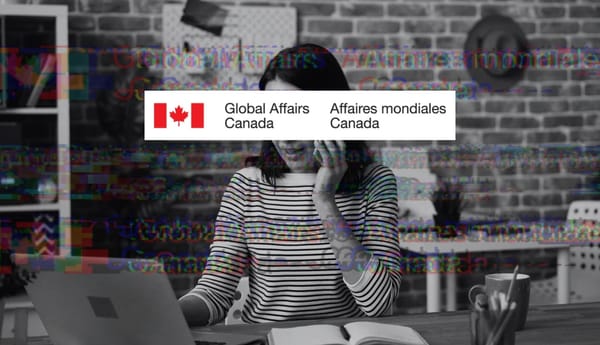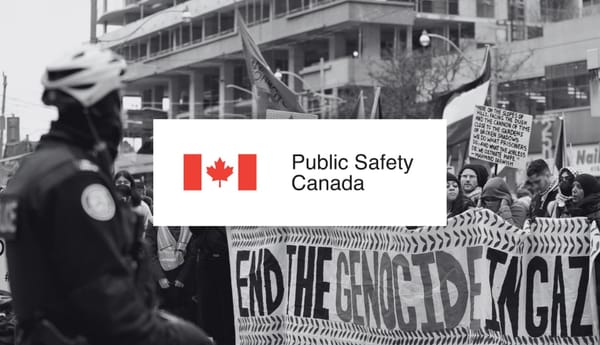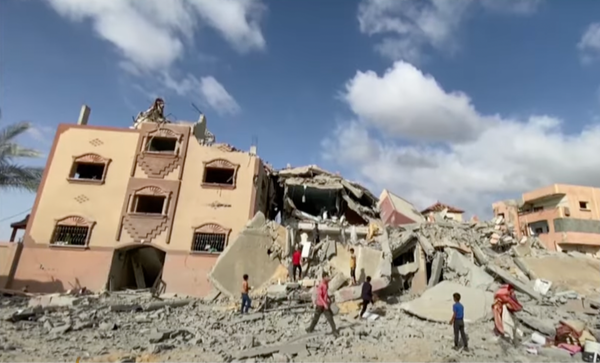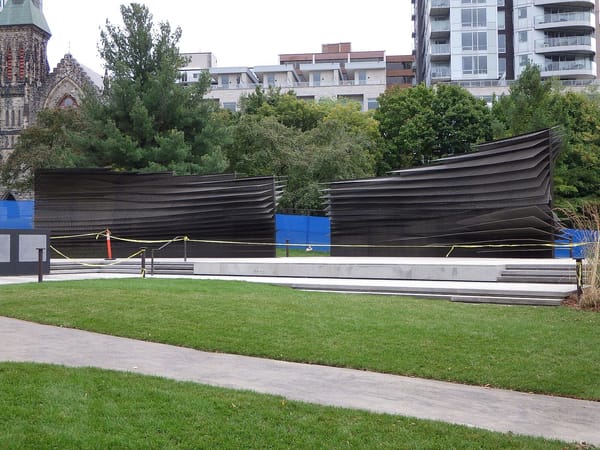On February 15, Canada’s federal government invoked the Emergencies Act for the first time ever by declaring a public order emergency. Yesterday, the government ended the use of the Act, leading some to breathe a sigh of relief. Still, the implications of the government’s historic decision for Canadian democracy should worry everyone living here, especially those who seek to effect socioeconomic change.
While the Act was in effect, the state could restrict movements in and around designated zones (for example, I live in Ottawa and had to present ID, with proof of address, to the Ontario Provincial Police to walk home from a friend’s house on February 18), ban public assemblies that may “reasonably” be expected to breach the peace, and freeze bank accounts, thereby precluding access to the means of subsistence.
Moreover, financial services — including crowd-funding platforms, which facilitate grassroots movements — were required to communicate financial data of “designated persons” (those suspected of engaging in the protests) to the RCMP or CSIS. The police also had considerable discretion to arrest anyone they believed to be a “designated person.”
The government claims that the use of these powers was justified because the blockades allegedly were:
- “being carried on in conjunction with activities that are directed toward or in support of the threat or use of acts of serious violence against persons or property, including critical infrastructure, for the purpose of achieving a political or ideological objective”;
- harming the Canadian economy;
- harming Canada’s relationship with trading partners (namely the United States);
- causing a breakdown of supply chains;
- leading to “the potential for an increase in the level of unrest and violence.”
Based on this evidence, however, the legal threshold to invoke the Act almost certainly wasn’t met.
The Act describes a public order emergency as “an emergency that arises from threats to the security of Canada that is so serious as to be a national emergency [emphasis added].”
The Act uses the same definition of “threats to the security of Canada” as the Canadian Security Intelligence Service Act, which outlines four types:
- (a) espionage or sabotage that is against Canada or is detrimental to the interests of Canada or activities directed toward or in support of such espionage or sabotage,
- (b) foreign influenced activities within or relating to Canada that are detrimental to the interests of Canada and are clandestine or deceptive or involve a threat to any person,
- (c) activities within or relating to Canada directed toward or in support of the threat or use of acts of serious violence against persons or property for the purpose of achieving a political, religious or ideological objective within Canada or a foreign state, and
- (d) activities directed toward undermining by covert unlawful acts, or directed toward or intended ultimately to lead to the destruction or overthrow by violence of, the constitutionally established system of government in Canada.
The government hasn’t alleged “espionage or sabotage,” and despite some of the activities being funded from abroad, they have neither been “clandestine” nor “deceptive.” Further, blockades, as a tactic, don’t entail violence being used to destroy or overthrow the government. These blockades are manifestly not equivalent to the events of Jan. 6, 2021, in the U.S. As such, (a), (b) and (d) are inapplicable.
As for (c), relatively isolated acts by protesters posed some genuine risk to a narrow set of individuals’ safety, and protesters disrupted and harassed my fellow residents. But to claim that the lives, health or safety of Canadians were seriously imperilled, throughout the country, is quite the stretch. The protests were generally peaceful, albeit a serious nuisance.
Even if the conditions for the threat (c) describes were met, the invocation of the Act still wouldn’t be justified. This is because the Act states that the situation must be so serious as to constitute a “national emergency,” which means it must either:
- (a) seriously endanger the lives, health or safety of Canadians and be of such proportions or nature as to exceed the capacity or authority of a province to deal with it, or;
- (b) seriously threaten the ability of the Government of Canada to preserve the sovereignty, security and territorial integrity of Canada
However, this emergency, under (a) or (b), can’t be one that can “be effectively dealt with under any other law of Canada.”
The protests didn’t seriously endanger the lives, health or safety of Canadians to such an extent that neither provinces nor existing laws could manage that risk. For example, in response to the blockade in Coutts, Alta., the province didn’t use its existing authority to revoke commercial licences. Moreover, the RCMP apprehended 13 armed individuals in Coutts before the Act was invoked, and these individuals were charged under existing criminal laws. The protesters then disbanded the blockade themselves.
Crucially, blocking streets and highways is already prohibited. The blockades, therefore, were illegal under existing law, giving the state the authority to remove them. Indeed, most blockades (e.g., in Coutts and Windsor, Ont.) were cleared without using emergency powers under the Act; thus, the powers were unnecessary.
In short, the reasons the government gave for invoking the Act — adverse effects on the economy and trading relationships, as well as breakdown of supply of chains — aren’t legitimate, and the blockades involved no “threat or use of acts of serious violence against persons or property [emphasis added].” Manifestly, the country wasn’t facing an insurrection or otherwise undergoing an emergency.
The threat the invocation of the Act poses to democratic freedoms, however, is serious, and the Canadian Civil Liberties Association has filed a suit in federal court, challenging the government’s use of the Act.
The convoy’s unpopularity led to the invocation of the Act receiving some support. However, lest we naively consent, we must remember that any working class or leftist movement that begins to exert pressure will very likely face draconian state repression — more so than they already did. This is worrying, because the coming decades will almost certainly witness many mass movements, and this needless use of the Act has helped normalize the decision for use in the future against protests we may support.






